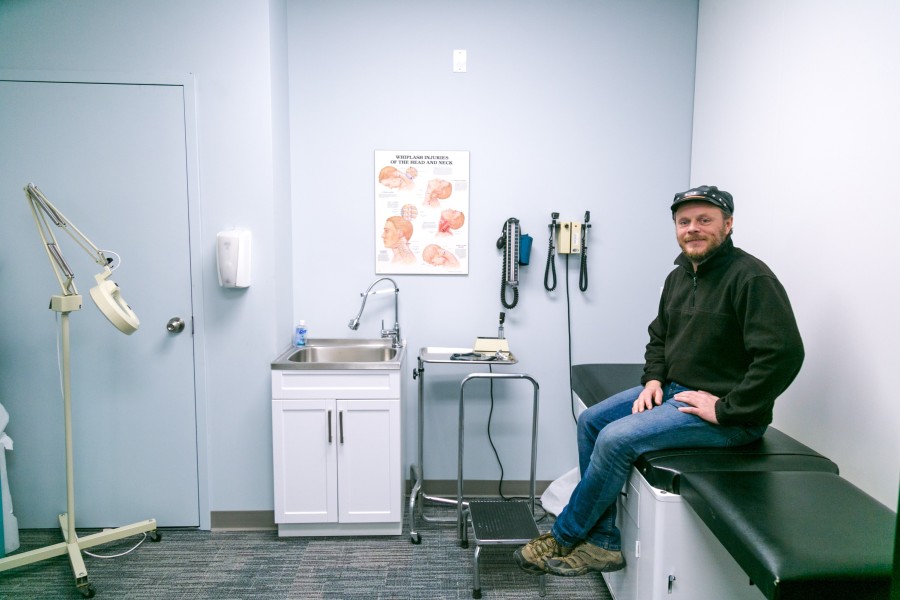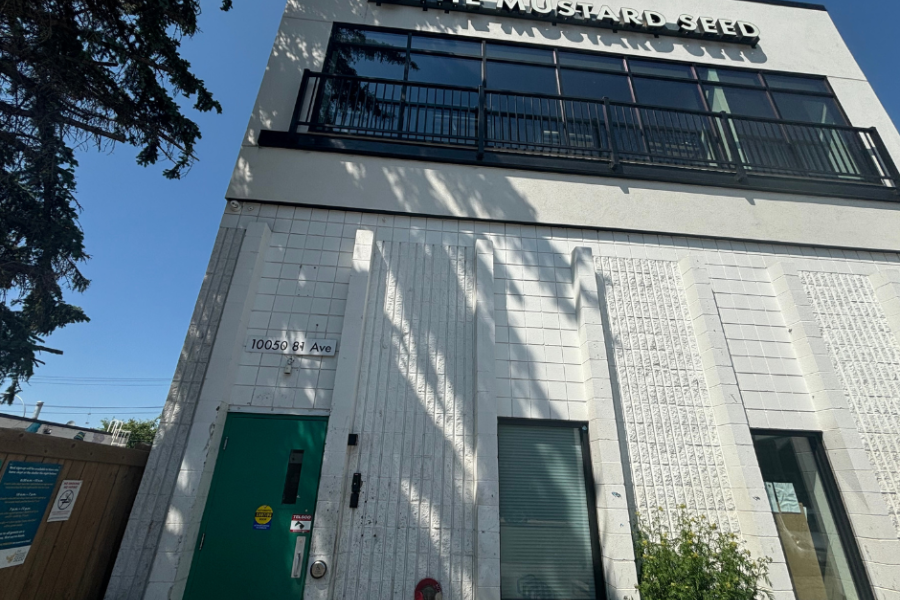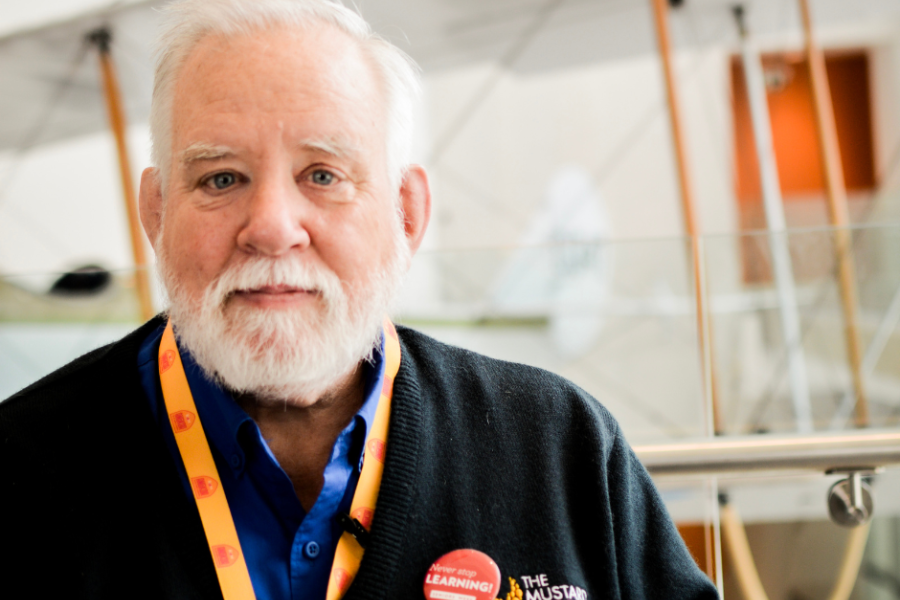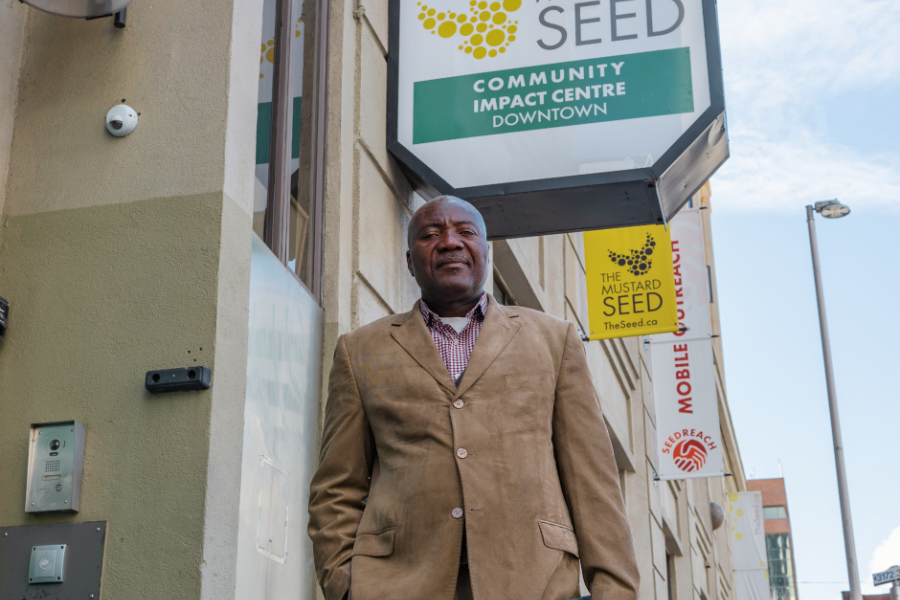“I was a mess – a 55-year-old mess. No medicine, no nothing.”
Gerry was out of options, after having a stroke, among other health issues, Gerry was no longer able to access the medication he needed or get help from the right doctors. He was afraid he would soon end up on the streets and had no one to turn to.
“I’ve been turned down and thrown away so many times the last two years that I gave up,” says Gerry.
The hospital referred Gerry to The Mustard Seed and he was able to get some of the help he needed. The Mustard Seed Medicine Hat continues to work with Gerry through it's advocacy programs today.
“I tried for a year, and I could not get anywhere, so I gave up. And then suddenly, boom - she printed off the papers and we sent them in. She did all that – she did everything.”
With the help of Liz, and other Health and Wellness Staff at the Mustard Seed, Gerry was approved for income Support, applied for Assured Income for the Severely Handicapped (AISH) approval, received support to navigate the medical system, and referrals to community organizations that assist with mental health outreach.
Liz was also somebody for Gerry to talk to.
“Normally I don’t talk to anybody, I’ve been alone most of my life,” says Gerry.
Providing Gerry with the right help was about more than getting him access to the right medication and the right doctors. It was about having someone advocate for him, help him navigate his way through the health care system, and have someone provide an ear to listen.
At The Mustard Seed, we believe that only treating the wounds that we see on the surface is not enough. We need to address the environment that caused the wound in the first place. We need to ensure food security allows for access to the right nutrition needed for healing and that counselling is available to deal with the trauma that may keep the individual in the cycle of poverty and homelessness. These multifaceted services are needed to tackle the root cause of that wound and prevent it from happening again. That is the role of our Health and Wellness programs.
Most people who are experiencing homelessness or are vulnerably housed often live with many other factors that make life more difficult. From mental illness and physical impairments to infectious diseases and traumatic brain injuries, there are often more issues that lie under the surface of homelessness. The Mustard Seed’s Health and Wellness programs aim to assist our clients past just temporary solutions but to help every aspect of the person that comes through our doors.
Occupational Therapists (OTs) are essential in this process. Sam, the director of our Health and Wellness programs, describes OTs as the “Swiss army knife of the health care system” as they are equipped with an arsenal of skills and resources to help their clients in any way they need. OTs are specialized in function and are specifically trained to determine how someone’s disability can impact their day-to-day life. Once OTs have determined these factors their role is to then alleviate the impacts that these disabilities can cause.
“When I was the Occupational Therapist at our Calgary Wellness Centre, the most rewarding part of the job was the ability to provide a service that typically is out of reach for a lot of individuals who experienced poverty or homelessness.”
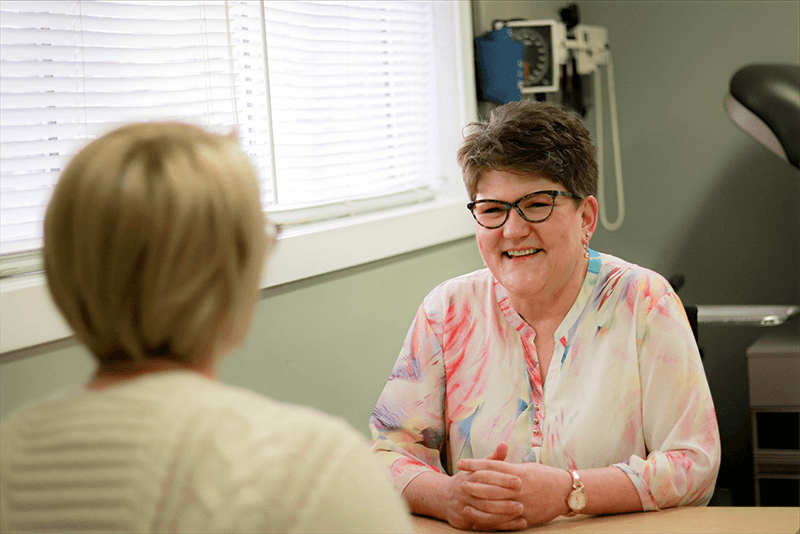
OTs have access to medical mobility equipment to create more independence for individuals in their daily activities. They also can perform different assessments to evaluate memory, executive functioning, visual perception, language abilities as well other neurological indicators to advocate for long-term disability funding for their clients. It is important to keep the independence of our guests while still providing them with the care and services they need.
“Clients… may not have engaged with our healthcare system in a very long time and [we are] that first point of contact again,” explains Sam.
“They've entrusted us with their dignity, with the ability for us to give them equity and care.”
Our programs are also able to reduce the cost to our healthcare systems. Over 77% of those experiencing homelessness have an average of 2.1 hospital visits per person, per year. While the average cost per day of hospitalization is $944 in a medical ward, $1,164 in a surgical ward, and $4,114 in a critical care ward, the average cost of The Mustard Seed’s preventative Health and Wellness Services is $21.14.
Alongside occupational therapy, The Mustard Seed offers advocacy programs, chaplaincy and spiritual care, and counselling services. The goal of our collaborative care is to help remove clients from the cycle of homelessness. Rather than simply offering short-term solutions, we hope to work alongside our clients on more long-term options.
Our goal is to take that individual, like Gerry, and not only help them heal but ensure that it never happens again.
